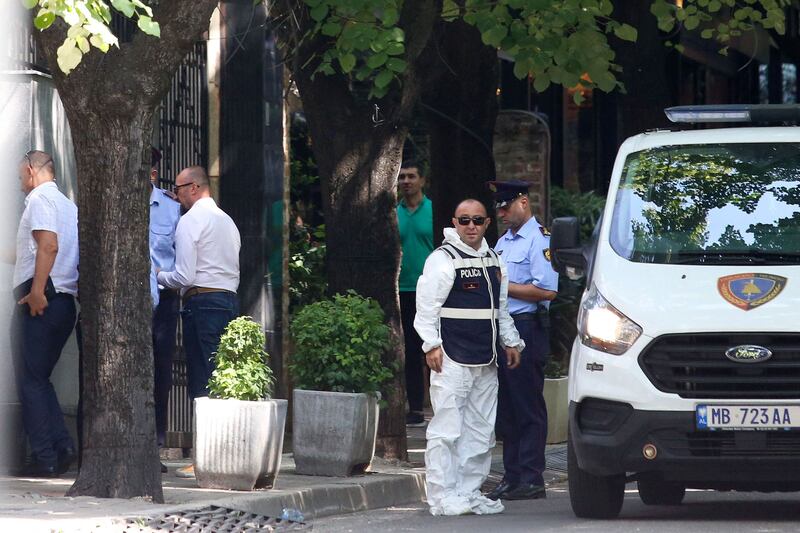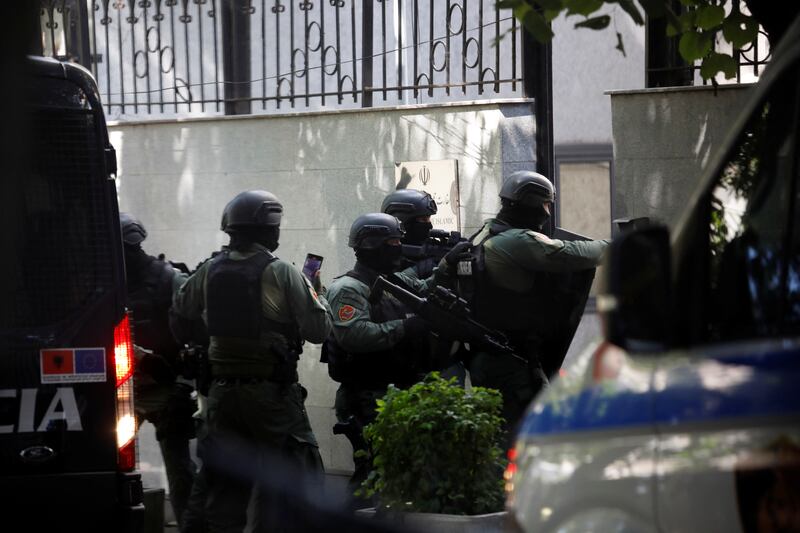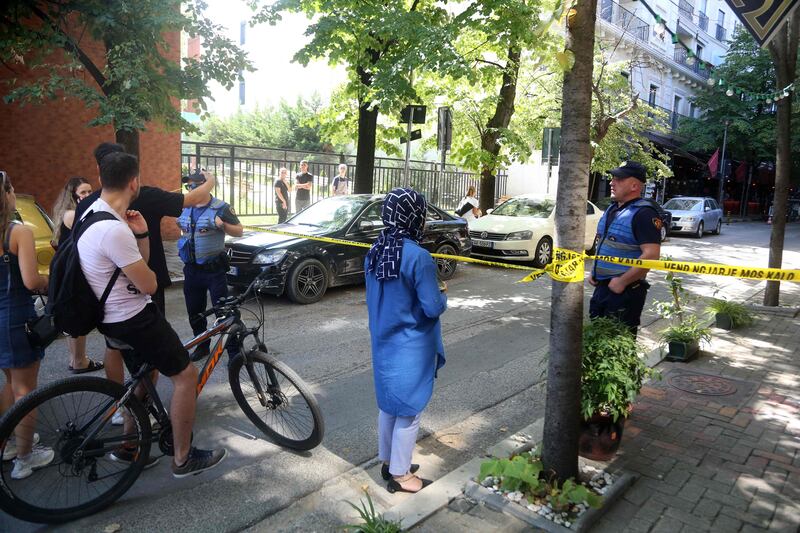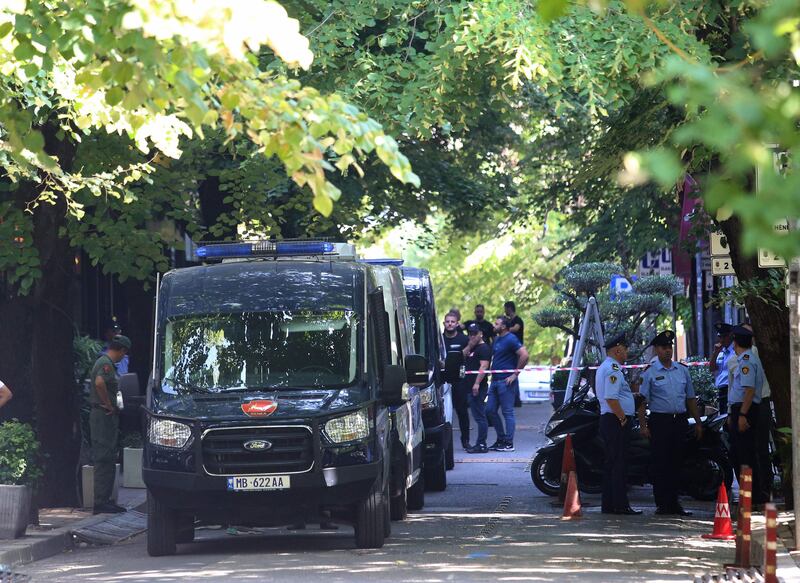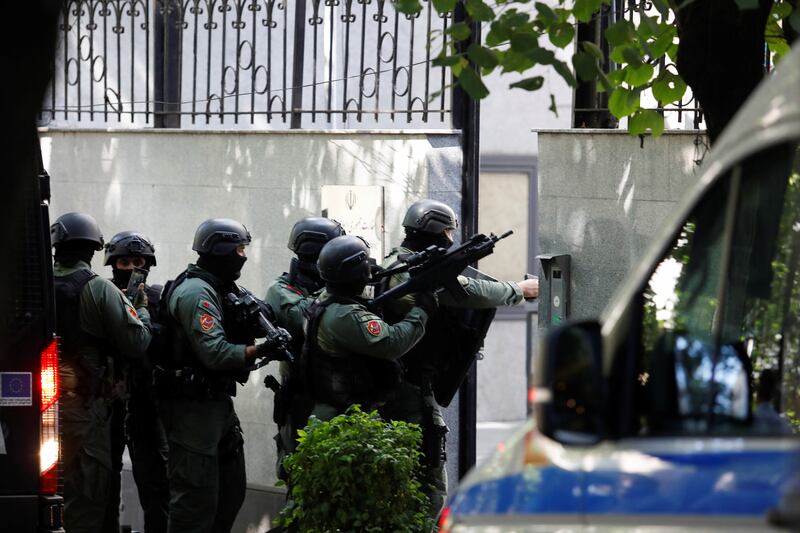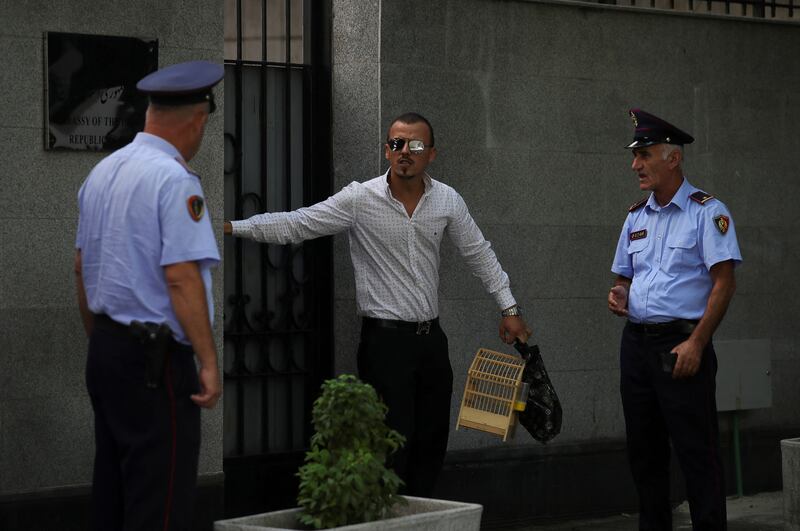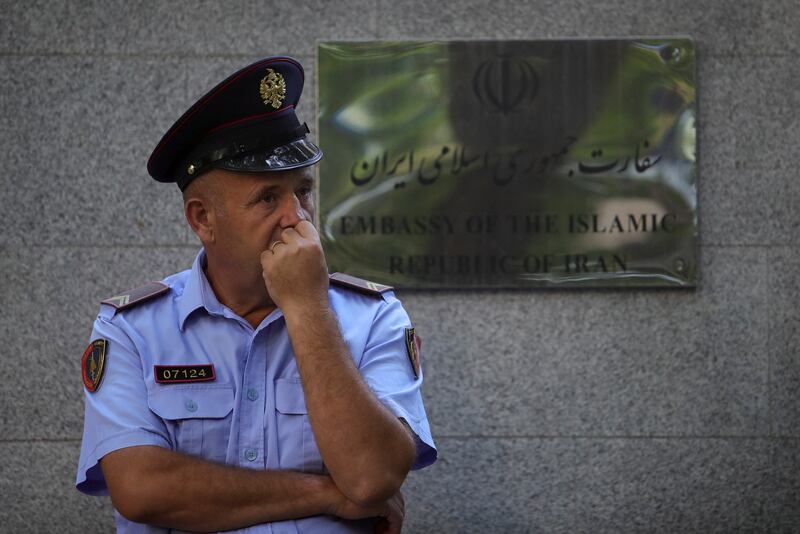Albanian special forces forced open the Iranian Embassy in the capital, Tirana, after the Albanian government gave an order to expel staff from the building.
Officers wearing full combat gear, accompanied by a dog, entered the building on Thursday as other officers surrounded the compound.
The raid took place shortly after the last staff members left the building.
The Albanian government gave an order on Wednesday for embassy staff to leave the building within 24 hours over a major cyber attack that it blames on Iran.
It is the first known case of a country cutting diplomatic relations over a cyber attack.
The final two embassy cars with about 10 passengers left the compound Thursday close to noon.
Government sources declined to say where the Iranian embassy personnel had gone but local media said some left from the Tirana International Airport and others were thought to be heading for neighbouring North Macedonia.
The compound area, located in the city centre, near the main government offices, was cordoned off by police. Passers-by were not allowed to approach.
Movement inside the Iranian embassy in Tirana had been non-stop overnight. At one point, an empty barrel was taken into the compound and a fire was started in it, apparently to burn documents, AP reported.
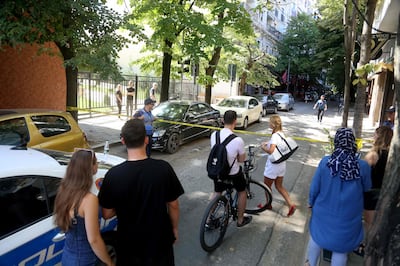
A cyber attack on July 15 temporarily shut down numerous Albanian government digital services and websites. Prime Minister Edi Rama said on Wednesday there was “undeniable evidence” that the Iranian government was behind the attack.
The US supported the move by Albania, a Nato member, and vowed unspecified retaliation against Iran for what it called “a troubling precedent for cyber space.”
On Wednesday, National Security Adviser Jake Sullivan spoke with Mr Rama “to express the United States’ strong support for our Nato ally.”
Washington said it was committed to continue working together on “Albania’s remediation efforts and cyber security measures”.
Nato support
Nato also expressed its full support to Albania. A statement said it “strongly condemns such malicious cyber activities designed to destabilise and harm the security of an ally and disrupt the daily lives of citizens”.
The alliance also pledged to raise “our guard against such malicious cyber activities in the future, and support each other to deter, defend against and counter the full spectrum of cyber threats, including by considering possible collective responses”.
The EU also denounced the cyber attack, expressing “full solidarity” with Albania.
“The attack directly targeted critical infrastructure and affected the delivery of public services to people and businesses in Albania,” EU foreign policy chief Josep Borrell said.
“We strongly condemn such unacceptable behaviour in cyber space, which goes against agreed norms of responsible state behaviour.”
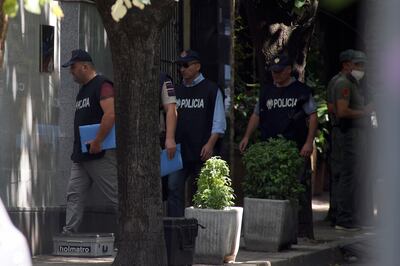
Iran condemned the diplomats’ expulsion, calling the action ill-considered and short-sighted, according to Iranian state TV.
The Iranian Foreign Ministry denied Tehran was behind any cyber attack on Albanian government websites. It said Iran was a target of such attacks on its critical infrastructure.
Ties between Iran and Albania have been tense since 2014 when Albania took in about 3,000 members of the Iranian opposition group People’s Mojahedin Organisation of Iran, who had left Iraq.
In July, the group had planned to hold the Free Iran World Summit in Manez, west of Tirana, with US politicians among the invitees. The meeting was cancelled “for security reasons and due to terrorist threats and conspiracies”.
In two separate instances in 2020 and 2018, Tirana expelled four Iranian diplomats for “threatening national security”.

